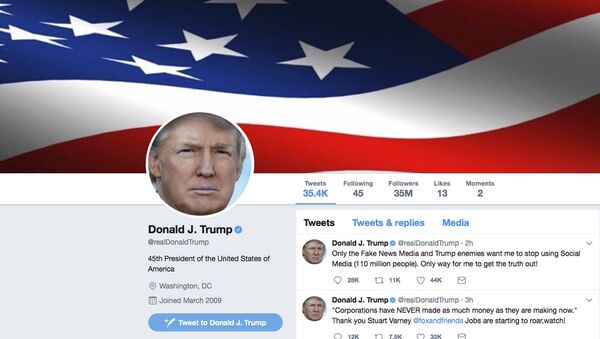The lawsuit, filed July, claims the President's Twitter feed is a public forum and an official information platform and as a result, excluding individuals from reading or replying to Trump's tweets (notably on the basis they directed negative tweets to the President) amounts to a breach of the First Amendment. The plaintiffs demand they be unblocked on Twitter, and seek an injunction to stop the blocking of further critics.
However, DoJ attorneys have robustly sought a block of their own on the legal bid.
"It would send the First Amendment deep into uncharted waters to hold that a President's choices about whom to follow, and whom to block, on Twitter — a privately run website that, as a central feature of its social-media platform, enables all users to block particular individuals from viewing posts — violate the Constitution," wrote attorney Michael Baer.
Further, the Department argues courts are powerless to tell Trump how he may manage his private Twitter handle, which has 35.8 million followers as of August 15 — if his use of the platform does amount to state action, it is "unquestionably" an action that lies within his discretion as Chief Executive, and therefore outside the scope of judicial enforcement.
As a result, ordering Trump how to manage his Twitter feed would "raise profound separation-of-powers concerns" by intruding directly on to the president's chosen means of communicating to citizens.
The Justice Department also notes users blocked by the president can still view his tweets — as long as they log out of Twitter — and criticize the President using the social media network (or indeed any social media network).
No hearing date has yet been set.
Despite the DoJ's firm dismissal, cases of this kind are not without precedent — precedent that suggests Trump may have a case to answer. In July, a federal judge in Virginia found a local politician had violated the First Amendment rights of one of his constituents after he briefly banned her from his personal Facebook account.
"The suppression of critical commentary regarding elected officials is the quintessential form of viewpoint discrimination against which the First Amendment guards. [Facebook] operates as a forum for speech under the First Amendment to the US Constitution," Judge James Cacheris ruled.


